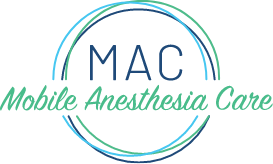If your child is having difficulty breathing or experiencing a life-threatening medical emergency, call 911.
POST-PROCEDURE FAQ
• After more than two episodes of vomiting
• If you are unable to arouse the patient, or they have an altered mental state or prolonged lethargy.
• Uncontrolled pain not related to the dental/surgical procedure.
• Nosebleed not responsive to pressure lasting more than 30 minutes.
• Fever 102* or greater during the first 24 hours after anesthesia.
Once the patient is arousing and the vital signs are stable the parent or guardian will be allowed to join the patient in recovery. Most patients are still drowsy and sometimes fussy at this point and we will continue to monitor until the patient meets discharge criteria. All patients receiving anesthesia will need a ride home by a parent or guardian. For pediatric patients, it is ideal for two adults to be present for the car ride home – one to assist with the patient’s needs, and the other adult to insure a safe driving journey home. For the remainder of the procedure day, we recommend the patient avoids any activities that might necessitate high degrees of balance, coordination, or mental alertness (i.e. sports).
The most common side effects of having general anesthesia are nausea, vomiting, and a sore throat. Patients will not be discharged from our care until they have met our discharge criteria. Your nurse will review discharge instructions and provide you with an information sheet to take home that includes the MAC phone number for any concerns that you may have.
Children must be placed properly in the car seat with seatbelts secured for the ride home. All children must stay with their parent or guardian through the first night after the procedure. Encourage your child to begin drinking clear liquids (water, Pedialyte, Gatorade) as soon as possible. Advance to a soft, light diet when they are ready, or as directed by your dentist/surgeon. Avoid heavy dairy and fried or greasy foods for the first day.
Return to clear liquids (water, Pedialyte, Gatorade) and when tolerating, and or hungry, advance again to the soft, light diet (jello, popsicles, chicken noodle soup). Call the MAC 24 hour line 913-788-0311 if the patient has more than two episodes of vomiting.
Your child should go home and rest after the day’s procedure. They will likely sleep on the way home and may nap and be drowsy for several hours afterwards. The medications they received may temporarily impair their coordination, balance and reflexes, or they may describe dizziness or blurred/double vision initially. No swimming, biking, skating or other activities that require coordination and balance. They may resume normal activities 24 hours after receiving anesthesia.
You may resume your child’s normal home medications after the procedure. If they had to skip a medication that they cannot miss for a day, you may give that medication when the child is home unless otherwise directed.
Specific instructions will be given at discharge for when to give Acetaminophen and Ibuprofen and any medications prescribed by the dentist/surgeon.
STILL HAVE QUESTIONS?
CONTACT US TODAY!
"*" indicates required fields

